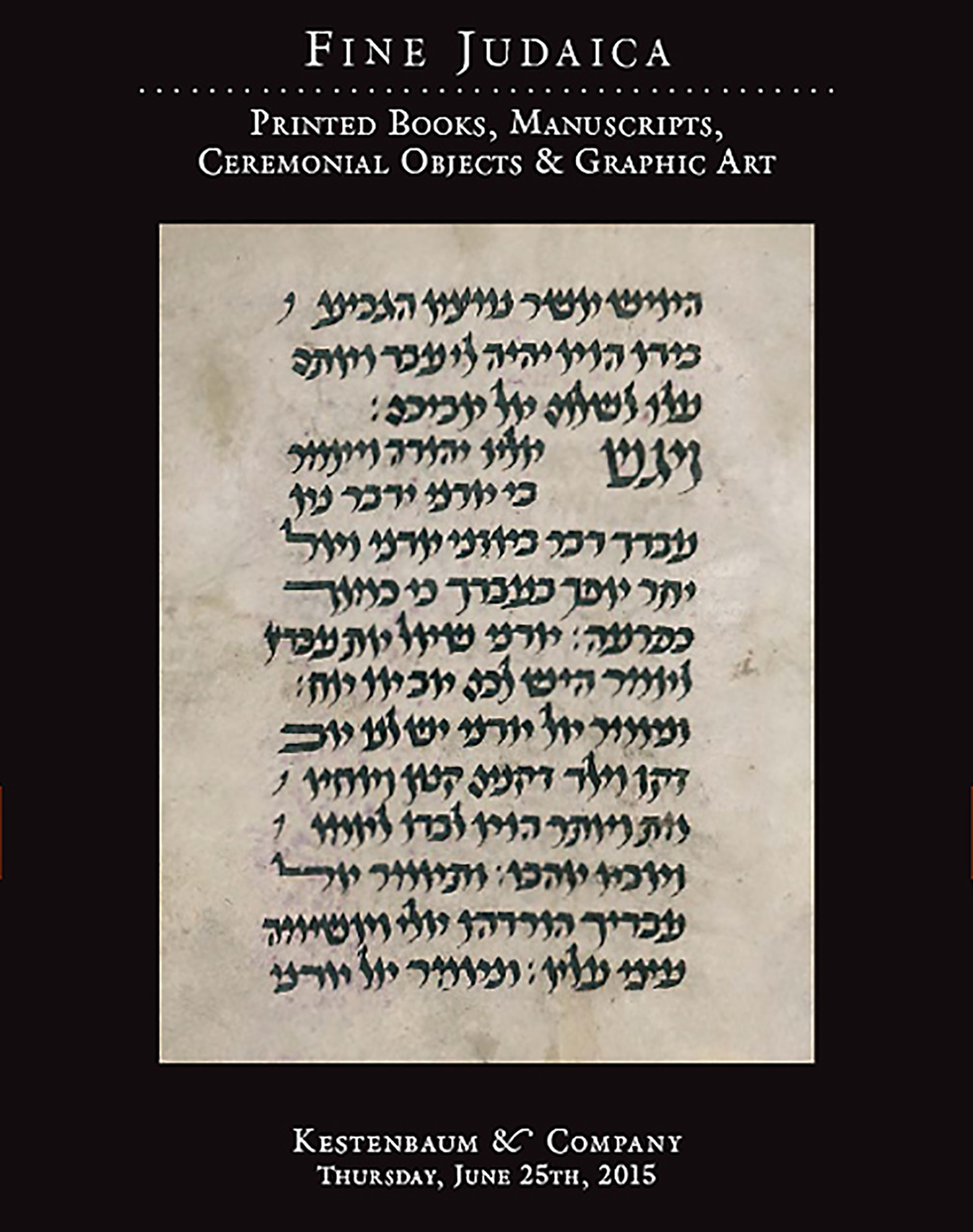Melecheth Shlomo [commentary to the Mishnah]

AUCTION 65 |
Thursday, June 25th,
2015 at 1:00
Fine Judaica: Printed Books, Manuscripts, Ceremonial Objects and Graphic Art
Lot 38
(MISHNAH). ADANI, SOLOMON BEN JOSHUA.
Melecheth Shlomo [commentary to the Mishnah]
Hebron: 1589-1623
Est: $30,000 - $50,000
PRICE REALIZED $75,000
<<SUBSTANTIAL AUTOGRAPH MANUSCRIPT OF A FUNDAMENTAL COMMENTARY TO THE MISHNAH.>>
Includes the Orders of Nashim and Nezikin. Nashim is here complete, Nezikin commences from the fourth chapter of Tractate Baba Metzia. From the additional notations written here by R. Adani in different inks and placed along the margins, it is evident that the author continued to add commentaries after the bulk of the manuscript was already composed. The endpapers of both volumes record historical and biographical information in R. Adani’s hand.
R. Solomon Adani began his monumental work, Melecheth Shlomo on the entire Mishnah when he was 22 years of age and worked on it for a period of 30 years. His aim was to resolve textual difficulties and establish the most reliable reading of the Mishnah based on his knowledge of numerous earlier manuscripts. His expertise in both Talmuds as well as in all poskim is here well apparent. His particular affinity for Maimonides is also well represented. Based on R. Adani’s commentary, the Amsterdam Mishnah of 1676 was edited. The commentary was first printed in Vilna in 1887. It is today one of the most celebrated commentaries on the Mishnah alongside that of Ovadiah of Bertinoro and the Tosafoth Yom Tov.
Solomon Adani (1567-c. 1625) was born in Sa’ana, Yemen, where his father served as Chief Rabbi. As a young child he moved with his family to Safed and later Jerusalem, where he studied under R. Chaim Vital and R. Betzalel Aschkenaki (author of Shita Mikubetzeth). His father, R. Joshua, passed away in 1582 and subsequent difficult economic circumstances were only resolved when his father-in-law to be, R. Moshe Hamani, recognized R. Solomon’s scholarly talents. Nonetheless, after settling in Hebron he was beset with personal difficulties, a total of eleven of his children died due to disease.
See Chida, Shem Hagedolim; M. Margolioth, Enc. L’Toldot Yisrael (1946) entry R. Solomon Adani; Introduction to Melecheth Shlomo.
